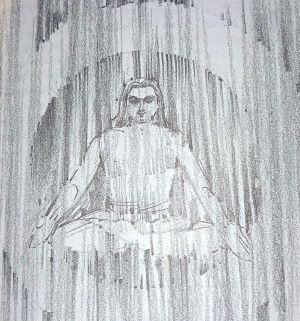
Most devout Indians fast regularly or on special occasions like festivals. On such days they do not eat at all, eat once or make do with fruits or a special diet of simple food. Some undertake rigorous fasts when they do not even drink water the whole day! Fasting is done foe many reasons – to please the Lord, to discipline oneself and even to protest. Gandhiji fasted to protest against the British rule. Is it to save food or to create an appetite to feast after the fast? Not really. Then why do we fast? Fasting in Sanskrit is called upavaasa. Upa means “near” + vaasa means “to stay”. Upavaasa therefore means staying near (the Lord), meaning he attainment of close mental proximity with the Lord. Then what has upavaasa to do with food ? A lot of our time and energy is spent in procuring food items, preparing, cooking, eating and digesting food. Certain food types make our minds dull and agitated. Hence on certain days man decides to save time and conserve his energy by eating either simple, light food or totally abstaining from eating so that his mind becomes alert and pure. The mind, otherwise pre-occupied by the thought of food, now entertains noble thoughts and stays with the lord. Since it is a self-imposed form of discipline it is usually adhered to with joy. Also every system needs a break and an overhaul to work at its best. Rest and a change of diet during fasting is very good for the digestive system and the entire body. The more you indulge the senses, the more they make their demands. Fasting helps us to cultivate control over our senses, sublimate our desires and guide our minds to be poised and at peace. Fasting should not make us weak, irritable or create an urge to indulge later. This happens when there is no noble goal behind fasting. Some fast, rather they diet, merely to reduce weight. Others fast as a vow to please the Lord or to fulfill their desires, some to develop will power, control the senses, some as a form of austerity and so on. The Bhagavad Geeta urges us to eat appropriately – neither too less nor too much – yukta – aahaara and to eat simple, pure and healthy food (a saatvik diet) even when not fasting.
From
"Why do we"- Swamini Vimalananda & Radhika Krishnakumar

